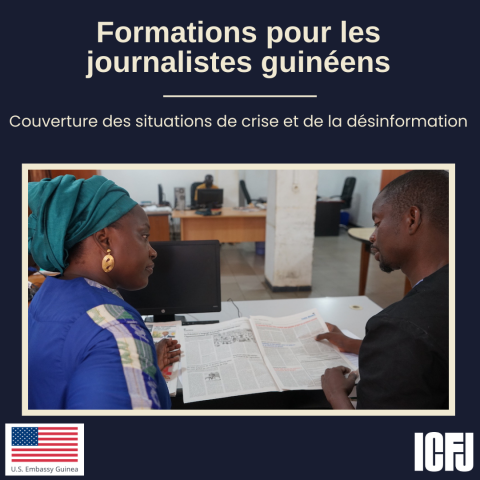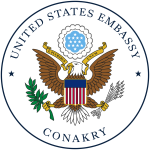
The Republic of Guinea, led by a military government that took power in the coup of 2021, is in the throes of an uncertain transition that the new leadership has promised will result in democratic reforms. For democracy to become established and flourish, independent journalists must be trained to perform their essential function as watchdog for the public interest. To this end, this program will equip Guinean journalists to carry out this vital work and become a bulwark against the return of corruption, human rights violations and the neglect and mismanagement that created the conditions for the coup.
The International Center for Journalists (ICFJ) is conducting a 12-month program to train journalists and build media literacy in Guinea. This program began by engaging Guinean journalists from areas vulnerable to conflict and instability in training webinars on the fundamentals of countering disinformation and conflict reporting. These webinars were held on March 27th and 28th.
ICFJ selected 40 Guinean journalists who attended all four webinars to attend in-person workshops in Conakry and N'Zerekore, where they participated in skills-building training with the support of specialized trainers. These workshops took place the week of May 13th in Conakry and May 20th in N'Zerekore. Winners of the inaugural Prizes for Excellence in Journalism in Guinea are also invited to participate in the in-person training sessions.
ICFJ is now administering a reporting grant period with a grant pool of over $7,500 in individual and collaborative reporting grants to 15 Guinean participants in the workshop, combined with dedicated mentorship to help them apply their newly gained skills to produce evidence-based reporting on critical issues affecting vulnerable populations in Guinea. Through this multi-tiered approach, ICFJ’s program will achieve the following objectives: (1) Strengthen social cohesion within and between at-risk communities in Guinea, and; (2) improve government responsiveness, inclusion, and accountability to at-risk communities.


